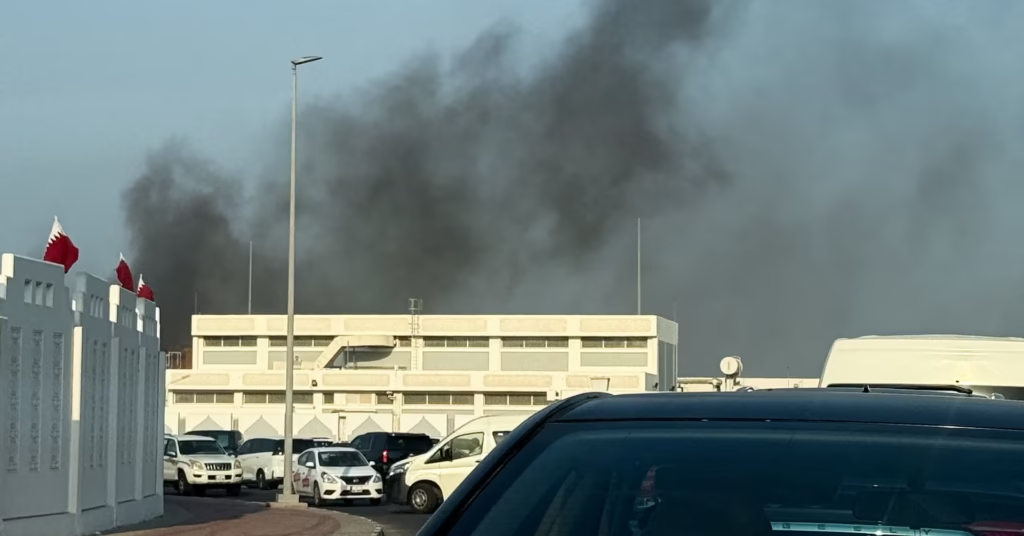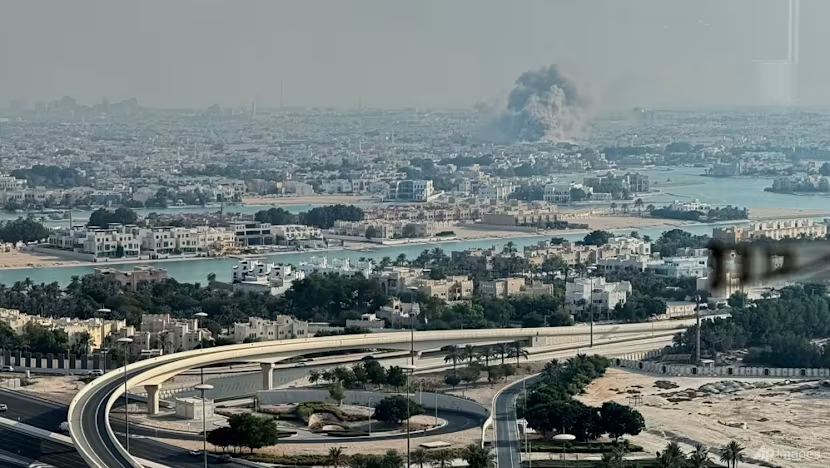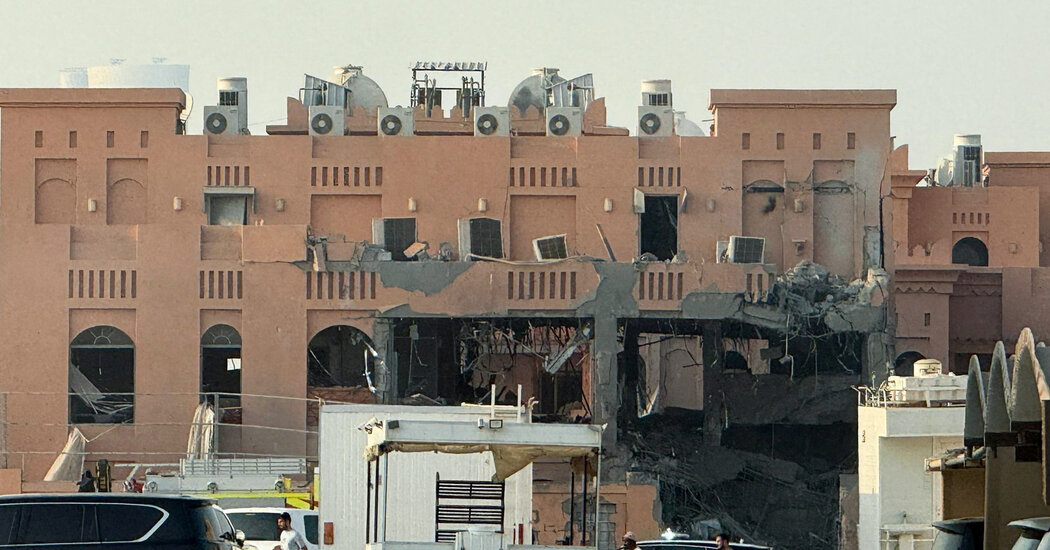A Shocking Strike That Shook the Gulf
Gulf Unity Faces New Test Amid Israel’s Doha Strike,The Middle East has always been a theatre of tension, with cycles of conflict and moments of fragile peace. But Israel’s recent attack in Doha has once again reminded the world how volatile the region remains. For many in the Gulf, this act did not just bring destruction it sparked a wave of fear, uncertainty, and an uncomfortable question: Can the Gulf states truly stand together against the chaos that keeps reemerging in the Middle East?
The attack caught the people of Doha off guard. Ordinary families going about their lives suddenly found themselves in the shadow of conflict. The event has not only raised humanitarian concerns but has also exposed deep vulnerabilities in the region’s political fabric. People in Qatar and across the Gulf felt an unsettling reminder that no city, no matter how prosperous or modern, is immune from the aftershocks of the wider Middle Eastern turmoil.
The Gulf’s Dream of Stability
For decades, Gulf states have invested heavily in projecting stability. Glittering skylines, global business hubs, world-class airlines, and international events have become symbols of the Gulf’s aspiration to show the world it is more than just oil. Cities like Doha, Dubai, and Riyadh are often seen as safe havens where ambition and progress thrive.
Yet beneath this shining exterior lies a complex political reality. While Gulf states have managed to shield themselves from much of the violence that has plagued their neighbors, moments like the recent strike serve as harsh reminders that their stability is not indestructible. The dream of standing apart from Middle Eastern chaos faces constant tests from conflicts that refuse to fade away.
A Region Divided in Response
One of the clearest outcomes of the Doha attack is the lack of a unified Gulf response. Some states issued strong condemnations, others stayed silent, and a few even appeared hesitant to take a side. This scattered reaction reveals an uncomfortable truth: while the Gulf shares geography, culture, and history, political interests often pull states in different directions.
The divisions are not new. Rivalries, competing alliances, and economic competition have always shaped Gulf politics. Some states lean closer to Western powers, others cautiously engage with Iran, and some balance between both. When a crisis like Israel’s strike in Doha erupts, these differences become impossible to hide.
For ordinary citizens, the silence or hesitation of leaders feels even louder than their statements. Many across the region hoped to see a strong, unified response that would send a message of solidarity. Instead, the fragmented reaction left people wondering if the Gulf is truly capable of collective strength in the face of external threats.

Israel’s Message and the Larger Implications
Every military strike carries more than just physical destruction it delivers a political message. Israel’s attack in Doha is not simply about a single operation; it is a signal that the reach of its conflict can extend far beyond its borders. By choosing a city like Doha, Israel underlined its readiness to strike at the heart of a Gulf capital, shaking the sense of safety that many in the region had taken for granted.
This also raises larger questions about the future of Gulf-Israel relations. In recent years, normalization agreements brought cautious optimism that dialogue might replace confrontation. But with one strike, the fragile trust has been shattered. For many Gulf citizens, the event feels like proof that engagement with Israel comes with risks that outweigh the benefits.
The Emotional Toll on Citizens
Beyond geopolitics, there is a human side to this tragedy. Families in Doha who lost loved ones, children who now associate the sound of sirens with terror, and communities that feel unsafe in their own neighborhoods these stories are at the heart of the crisis.
Across the Gulf, people empathize deeply with those affected. Memories of past conflicts in the region stir a shared pain. Ordinary citizens who dream of peace, prosperity, and a life without fear feel betrayed by leaders’ inability to protect them. On social media, voices of anger, sorrow, and frustration echo louder than official statements, reflecting a generation unwilling to accept conflict as destiny.
Why the Gulf Struggles to Stand as One
The inability of the Gulf states to present a united front is rooted in both history and modern politics. Each state has its own security priorities, alliances, and visions of leadership in the region. Some are wary of pushing too hard against Israel or the West, fearing economic repercussions. Others are more concerned with their rivalry with Iran than with the Israeli-Palestinian struggle.
This lack of common ground prevents the Gulf from rising together. Even when faced with an attack on one of their own, unity remains elusive. Citizens notice this gap, and it deepens a growing frustration that leaders put political convenience above regional solidarity.
The Burden of Global Expectations
The world often looks to the Gulf as a beacon of progress in the Middle East. With their economic wealth and influence, Gulf states are expected to play a stabilizing role in the region. International powers see them as partners in maintaining order, investing in development, and promoting peace.
But when crises like the Doha strike erupt, the world also sees their limitations. The failure to present a united stance undermines their image as regional leaders. Instead of appearing as a block capable of shaping the Middle East’s future, they come across as vulnerable, divided, and reactive.
This gap between expectation and reality adds another layer of pressure on Gulf states. They want to be seen as powerful, independent players but power demands unity, and unity is still missing.

Voices of the Youth
One of the most striking reactions to the Doha strike has come from the Gulf’s young generation. Across campuses, coffee shops, and online platforms, young people express anger at the violence but also disappointment in their leaders. They question why, in an era of prosperity and global influence, their states still seem unable to protect them from the chaos of the Middle East.
For many young Gulf citizens, the attack feels personal. They see their cities not just as capitals but as symbols of a better future safe, modern, and open to the world. To witness them targeted by conflict is to watch their dreams threatened. Their voices carry a plea for leadership that matches their aspirations for peace, dignity, and unity.
What the Gulf Must Do Now
The Doha attack cannot simply pass as another entry in the region’s long list of conflicts. For the Gulf, it must serve as a wake-up call. Unity is no longer an abstract ideal it is a necessity.
To move forward, Gulf leaders must find common ground that goes beyond political rivalries. A coordinated security framework, collective diplomatic strategies, and a genuine commitment to defending each other are essential. The people of the Gulf want to see their leaders act not as individual states but as a family that protects its members.
Equally important is a focus on dialogue with ordinary citizens. People need to feel that their fears and concerns are being heard. Transparent communication, visible steps for security, and empathetic leadership will help restore trust that has been shaken.
A Region at a Crossroads
The Middle East has reached yet another crossroads. The Doha strike symbolizes the danger of allowing old conflicts to spill into new spaces. For the Gulf, it highlights both the promise and the fragility of their position. They are wealthy, ambitious, and influential but also deeply vulnerable to the chaos that surrounds them.
The path forward is not simple. Unity will not erase decades of mistrust overnight. But without it, the Gulf risks being seen as a wealthy region incapable of defending itself. With it, however, the Gulf could transform from a collection of states into a true regional powerhouse capable of shaping peace and stability.
A Call for Courage and Unity
Ultimately, the people of the Gulf want what all people want: safety, dignity, and the chance to live without fear. The Doha strike has shaken that sense of safety, but it does not need to define the future. What will define it is how leaders respond not with hesitation, but with courage; not with division, but with unity.
The chaos of the Middle East is not an unstoppable force. History has shown that regions can rise from conflict to stability, from fear to hope. The Gulf has the resources, the vision, and the people to do the same. But to achieve it, leaders must finally put aside rivalries and act as one.
The world is watching. Their citizens are waiting. And the future of the Gulf depends on their ability to rise together against the shadows of chaos.
Do follow Gulf Magazine on Instagram.
Also Read – Dubai Mums Rise Strong: Morning Routines That Inspire



